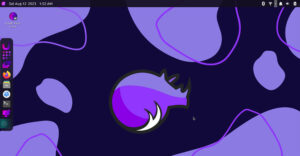
Microsoft recently issued the first consumer preview of its upcoming Windows 8 operating system, and at least one user isn’t wowed by the dramatic design changes found in the new OS.
Microsoft has been keeping users up to date on the software construction process with a blog called “Building Windows 8,” meant to get users enthused and informed about the new features. But another blog entitled “Fixing Windows 8” launched on March 3. It is countering some of Microsoft’s claims that the new operating system will be user-friendly on both touch and traditional screens.
The author of the blog doesn’t reveal his or her name or position on the site, but various reports have identified him as Mike Bibik, a former Microsoft employee currently working at Amazon.
The Fixer’s Tale
The “Fixing” blog author points out what he perceives to be design flaws in the system. His main issue with the program is its design for a traditional mouse and keyboard arrangement. Windows 8, he says, is a “radical leap forward” and may be “phenomenal” for the tablet, but traditional PC users will have a tougher time following the interface.
One video post from tech writer Chris Pirillo seems to demonstrate that. In it, Pirillo’s father, described as an average PC user, is lost attempting to navigate the program without any assistance. At the end of the video, Pirillo’s father asks the videographer if the company that created it was trying to drive him to Mac.
The “Fixing” blogger points out other quirks that might cause casual users to become frustrated. When users first launch Windows 8, they see a user interface called “Metro” that displays various apps. The writer notes that these apps don’t have controls and can’t be minimized or maximized — a blip he says will cause many users to give up.
Many users might also give up when they realize some Metro apps require a Microsoft account to work, he notes.
Scrolling, too, could be confusing for some users. In a few Metro apps, it goes left-right rather than up and down, because that is the way Metro apps are positioned.
There is no tutorial helping users through some of the more cumbersome steps, he says, although since Microsoft didn’t release the final version of the product yet, it’s possible that’s in the works. Microsoft didn’t respond to our requests for comments on this story.The blogger maintains he’s not trying to be overly critical and that he only wants to keep exploring the issues and offer suggestions that Microsoft could use to improve the product.
Microsoft Needs It
Other early reviews of the product have been more forgiving.
“I would be careful about the reviews and the blog,” Sunit Gogia, analyst at Morningstar, told TechNewsWorld. “It’s true that some people are saying that making the tablet interface has led to too many compromises with the PC interface, but we’re talking about a very slight group of users at this point.”
Even if compromises exist, the spot where Microsoft needs a win isn’t for the average PC user, it’s for the growing mobile and tablet markets.
“Windows 8 is designed for the mobility market,” Larry Walsh, president of the 2112 Group, told TechNewsWorld. “It’s designed to get into the tablet game, and it’s also designed for a parallel development for Windows phones.”
The users that might not be ready to make the switch over from Windows 7 — such as large-scale enterprise systems that might have just completed the migration to Windows 7 or PC users who just don’t want to — don’t have to.
“On desktops, Windows 7 has been incredibly successful, and of course Microsoft would like people to migrate, but if they don’t want to, users can keep going with the Windows 7 easily,” said Gogia.
Microsoft faced different circumstances in the tablet game. The company has been championing Windows 8 as the game-changer for it to break into the competitive tablet market.
“That’s not just going to be what puts Microsoft into the tablet market, but it will expand the total addressable tablet market, and that’s what will make Microsoft a contender,” said Walsh. “It looks like Apple and Android will continue to be substantial on the consumer side, where Windows 8 will play directly into the enterprise side.”
But though Walsh and Gogia say Windows 7 will keep some users happy for the foreseeable future, they say Microsoft must succeed in making Windows 8 tablet-ready.
“It’s getting quite late in the game, and they can’t really afford a miss if they want to increase competitiveness with tablets,” said Gogia.





















































